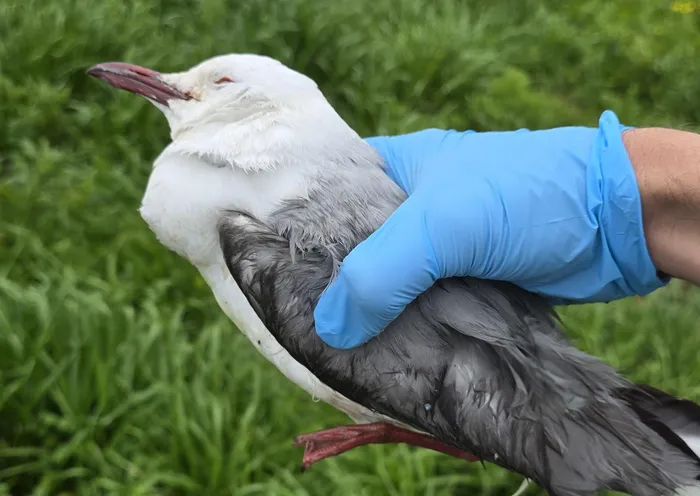Stay informed: Bird flu outbreak near Paarl prompts public awareness

Hartlaub’s Gulls have been found dead in the Cape Town area and have tested positive for high pathogenicity avian influenza.
Image: SANCCOB
The Western Cape Department of Agriculture has confirmed an outbreak of high pathogenicity avian influenza (HPAI), commonly referred to as ‘bird flu,’ which was detected in farmed ducks near Paarl early last month.
In a statement, the department reassured the public that poultry products available in grocery stores remain safe to eat.
The outbreak has also led to the deaths of Great White Pelicans near Malmesbury and Hartlaub’s Gulls in Cape Town.
“These are the first wild bird cases reported in the Western Cape since April 2024 and the first mass mortalities since 2022,” the department stated.
The affected ducks and associated chickens were culled voluntarily to prevent further spread.
Recent outbreaks have been confirmed in chickens in North West and Mpumalanga provinces.
Avian influenza is a viral disease that primarily affects birds. Infected wild birds may appear unusually tame, lose their fear of humans, or exhibit neurological signs such as twitching or seizures.
The virus is present in the droppings and bodily fluids of infected birds and spreads via direct contact between birds or through contaminated materials.
The Western Cape Government encourages the public and the agricultural sector to participate in preventing the spread of this disease in poultry.
Avian influenza is a notifiable disease under the Animal Diseases Act, 35 of 1984, so it is essential to report suspected outbreaks in poultry to the local State Veterinarian immediately. Contact details are available here.
Members of the public can also report finding an unusual number of sick or dead wild birds, close together. This would be approximately three or more for seabirds, but fewer for solitary species like birds of prey.
Farmers and poultry producers should apply strict biosecurity measures to prevent potential virus introduction from infected birds and properties:
- Access to farms should be restricted as far as possible: Do not allow any individuals who have had contact with poultry in the last 48 hours onto your property.
- It is important to keep poultry away from wild birds and their body fluids and faeces, through screens, fencing, or nets.
- Vehicles entering properties should be disinfected upon entering and exiting. Disinfect footwear upon entry and exit to the poultry house.
Related Topics: